Wheelchairs, oxygen concentrators, and hospital beds are just a few of the vital goods that the durable medical equipment (DME) sector provides. Notwithstanding its importance, the DME sector confronts a number of challenges that may prevent company expansion and improve operational effectiveness. With a DME business startup guide, you can establish your own DME business and navigate the industry successfully.
Success in this cut-throat industry depends on comprehending these challenges and putting proven strategies into practice.
Regulatory Compliance and Reimbursement Issues
Challenge: Handling the different regulatory obligations is one of the biggest challenges faced by DME firms. It is crucial to follow Medicare and Medicaid requirements but it can be difficult to keep up with their constant changes. Moreover, obtaining reimbursements from these programs sometimes necessitates a lot of paperwork and may cause delays in payments, which can negatively impact cash flow.
Strategy: DME companies should invest in specific compliance software that is up to date with regulations. It is possible to make sure that all paperwork and procedures adhere to current requirements by hiring or consulting with compliance specialists. Furthermore, preserving a thorough and proactive claims management strategy may aid in lowering late fees and raising reimbursement percentages.
Market Saturation and High Competition
Challenge: Several companies are fighting for market share in the highly competitive DME industry. Smaller companies may find it difficult to prosper due to this rivalry, which has the potential to bring down prices and tighten profit margins.
Strategy: Differentiation is essential to be noticed in a congested market. DME companies should focus on providing outstanding client service, which includes tailored advice and assistance. Creating a specialized market by offering a limited range of goods or services might help draw in a devoted clientele.
Financial Management
Challenge: Especially for new and small enterprises, efficient financial management is essential. In the DME sector, managing cash flow, obtaining capital, and keeping expenses under control are enduring issues.
Strategy: Creating a comprehensive budget and financial plan is the first step. Financial tracking and reporting may be streamlined by using accounting software designed specifically for healthcare organizations. Examining other financial sources, such as grants, loans, and investors, can supply the money required for expansion. The company’s financial stability is maintained by routine financial evaluations and modifications depending on performance indicators.
Customer Retention
Challenge: It can be challenging to retain clients since many purchases in the DME sector are one-time or irregular. Creating enduring value and solid relationships is necessary to guarantee recurring business.
Strategy: A customer relationship management (CRM) system may be implemented by tracking customer interactions and preferences, allowing for targeted marketing and follow-ups. Offering loyalty programs, consumable subscription plans, or maintenance services might encourage recurring business. Getting input from customers on a regular basis and quickly resolving any issues they may have fosters trust and loyalty.
Even if the DME sector has many challenges, companies can overcome these obstacles by taking calculated risks. DME firms may not only survive but also prosper in this vital and dynamic market by putting a strong emphasis on compliance, financial management, technology integration, differentiation, resilient supply chains, and customer retention.
